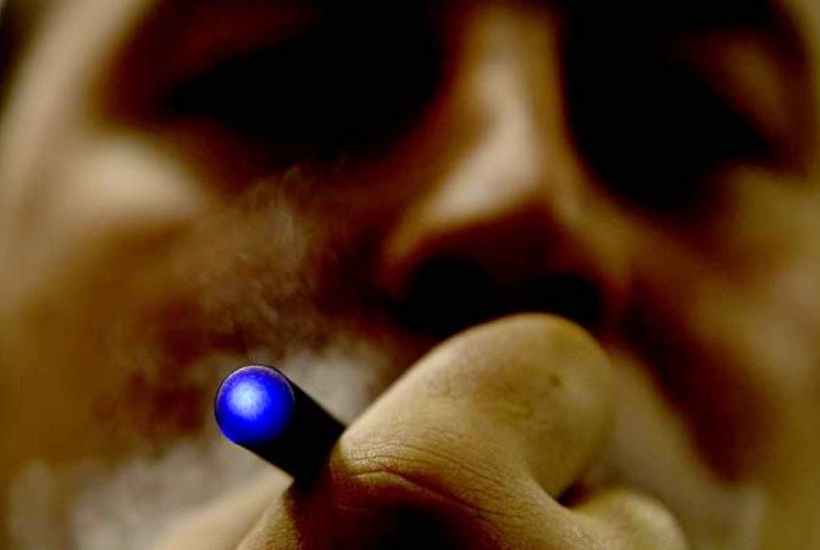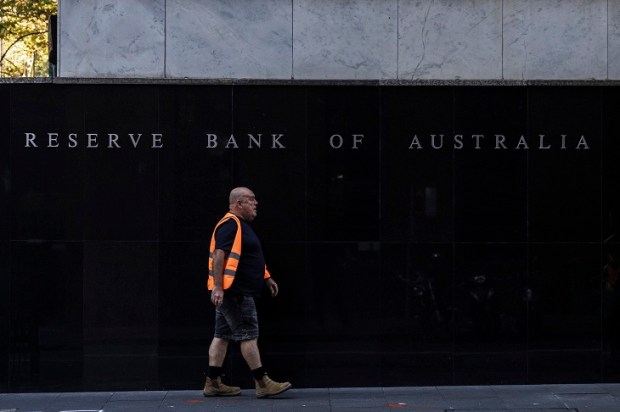There is a public health issue you would have heard very little about that could be far more important to the health of Australians than the pandemic.
The federal government has indicated it plans to shut off an alternative to smoking by banning the importation of nicotine juice by vapers. Anyone who does try to import nicotine could be up for a $220,000 fine. This could lead to thousands of tobacco related deaths as vapers get back on the smokes.
Smoking remains the leading cause of avoidable death in Australia, so the stakes are high. The Australian Institute of Health and Welfare estimates that it contributes to 21,000 deaths in Australia every year, or about 55 every day. So in terms of mortality, sending even a small proportion of Australia’s 300,000 vapers back onto cigarettes will make the pandemic look trivial by comparison.
The government has indicated they may create a difficult pathway for some people to get nicotine juice through doctors, but the onerous terms they are proposing ensure it will effectively become a ban for most people.
But there have been no special meetings of cabinet and premiers, no advertising campaigns, no apps developed and no lockdowns.
And there have certainly been no zoom meetings with public health experts from around the world – because they would rightly think our public health officials are crazy.
It is illegal to sell e-liquid containing nicotine in Australia without a prescription. For everyone else in the western world, our position is an outlier – as evidenced by the fact that vaping shops are open in hospitals in the United Kingdom and vaping is promoted on government websites around the world as a legitimate pathway to quitting smoking.
In fact, there are only three OECD countries out of 36 where vaping continues to be illegal – Australia, Turkey and Mexico.
If you are not a public health expert or a vaper, you could be excused for not being across this policy debate. Vapes were only invented 14 years ago by a Chinese medical researcher, Hon Lik, who feared that he would die of a smoking related illness. He came up with the idea in a dream and patented the first e-cigarette product in 2006.
The safety of e-cigarettes has been under intense scrutiny ever since, but the results are in, and they reflect what most of us would intuitively know – that a product you inhale that doesn’t contain smoke and tar is far safer for people than cigarettes. On this, there is overwhelming scientific agreement. Vapes give smokers the nicotine and the flavour they crave, while avoiding 7000 chemicals – many of them carcinogens – they would inhale from burning tobacco.
One of the most tiresome arguments against vaping is that it should be banned because smoke-free products are harmful. However nobody argues that vaping is without risk, only that it is far safer than smoking.
Most importantly, recent studies show e-cigarettes are almost twice as effective as other nicotine replacement therapies such as patches and nicotine gum.
Britain’s Royal College of Physicians and Public Health England have independently concluded that the long-term health risk from smoke free products is unlikely to exceed 5 per cent of the harm from smoking tobacco. The Royal Australian College of Physicians who represent 25,000 specialists including cardiologists and respiratory physicians have since fallen into line with their international peers.
Studies also show it is rare to find a vaper who has never smoked and the vast majority are former smokers looking for a safer alternative or a pathway to quit.
However, the AMA and the Health Minister, Greg Hunt are siding with the tinfoil hat brigade by forcing Australian vaping companies offshore and creating a system that could be described as death by red tape.
It’s a mystery why the Australian health bureaucrats have been left behind by the rest of the world. Banning vaping is like banning seatbelts because of reports people have been injured by sitting on a hot buckle on a summer’s day.
Meanwhile, Australia’s vapers and ex-smokers are a growing army of organised, passionate people. The weight of international opinion is on their side. They have already succeeded in delaying the new bans until early next year, and unless the Health Minister changes his mind for good, he could be in for a shock about how passionate and organised they really are.
None of this makes any sense, but our health bureaucrats seem to cling to the view that anything that might involve Big Tobacco is evil. This is a strange position to have considering many of the same bureaucrats have links to big pharmaceutical companies that sell nicotine patches.
But the biggest irony of all is that banning vapes is likely to send a brand new cohort of people craving nicotine straight into the arms of Big Tobacco.
The tobacco companies must be wondering – with enemies like these, who needs friends?
David Limbrick is the Liberal Democrats MP for Victoria’s South East Metropolitan region.
Got something to add? Join the discussion and comment below.
Got something to add? Join the discussion and comment below.
Get 10 issues for just $10
Subscribe to The Spectator Australia today for the next 10 magazine issues, plus full online access, for just $10.


























Comments
Don't miss out
Join the conversation with other Spectator Australia readers. Subscribe to leave a comment.
SUBSCRIBEAlready a subscriber? Log in